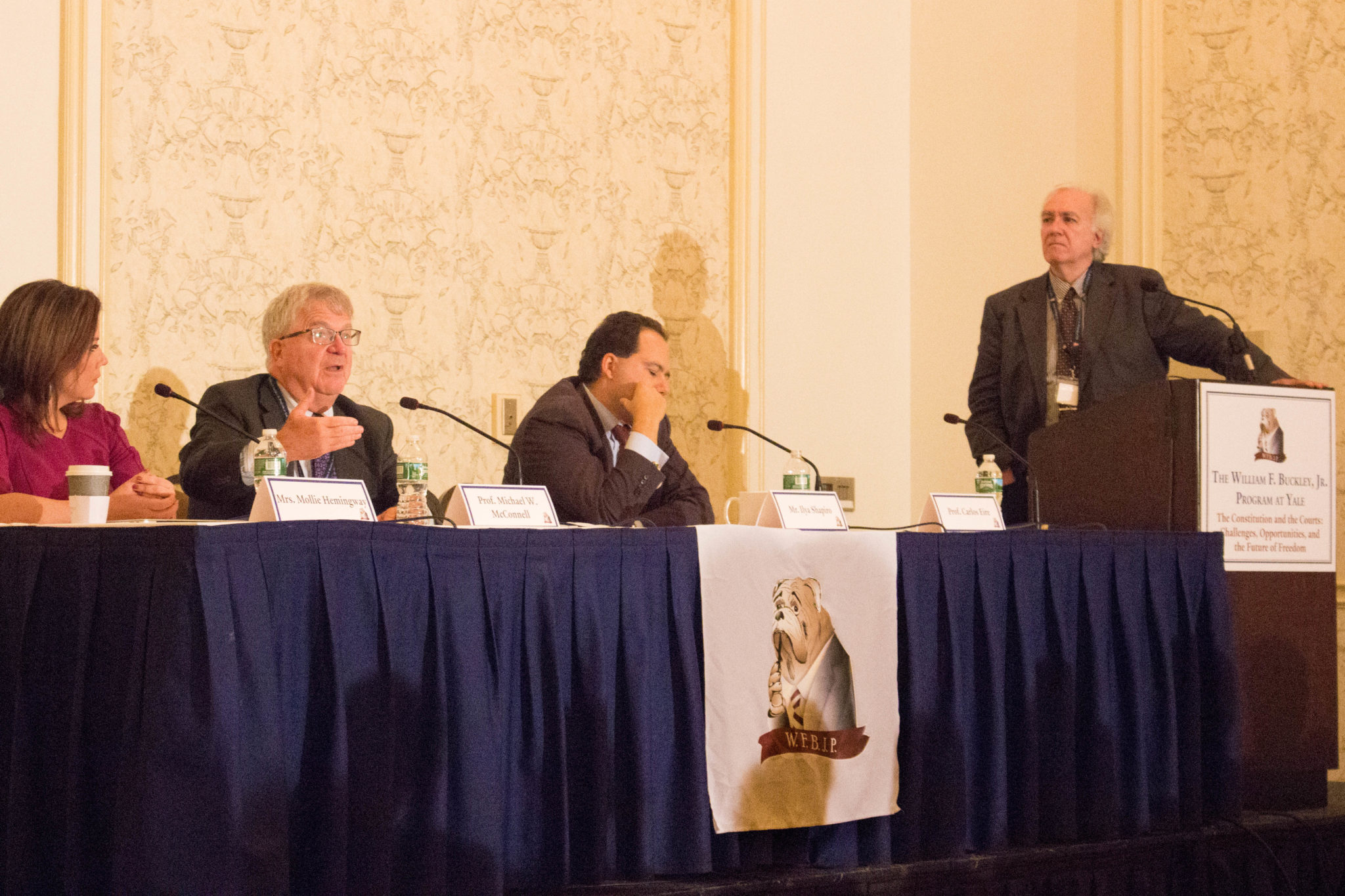
Alexandra Small
Roughly 200 students, alumni and other guests gathered at the Omni hotel last Friday for a half-day conference hosted by the Buckley Program at Yale titled “The Constitution and the Courts: Challenges, Opportunities, and the Future of Freedom.”
The event kicked off with an opening address from William H. Pryor, Jr., a high-profile American judge who recently came close to being nominated to the Supreme Court, and subsequently broke off into three panel discussions: “Challenges to Religious Liberty in 21st Century America,” “Judicial Confirmations and Interpreting the Constitution: Borking, Activism, and Originalism” and “Federalism and the Modern Administrative State.” The night ended with a formal dinner and an address from former U.S. Senator Kelly Ayotte. For many of those in attendance, the event offered a welcome opportunity to explore ideas outside of what is typically described as Yale’s liberal bubble.
“It’s good to have some conservative intellectual life at Yale, to break the monotony of the left,” said Edward Whelan, president of the Ethics and Public Policy Center — a conservative think tank — and a panelist at the event.
Another panelist, Jonathan Turley, a professor at the George Washington University Law School, told the News he was “gladdened” to meet so many Yale students interested in discussing jurisprudential views that are marginalized at a time when “Yale and other universities have been seen as increasingly intolerant and inhospitable forums.”
Students in attendance also expressed appreciation for what they described as fresh perspectives on important issues.
Alaric Krapf ’19 said people widely remark on the “general liberal milieu on campus,” so it was enjoyable to explore a “counterpoint” in the Buckley conference and witness a change in campus discourse. Daniel Graves GRD ’21 said he came to the event in order to hear people from “unorthodox perspectives” share their views on the Constitution.
Jack Fowler — an attendee as well as the vice president and former publisher of National Review, which was founded by Buckley — told the News that the event “is a great remembrance of Bill.” While he enjoys the panels, Fowler said, he explained that it is also vital to promote the legacy of the program’s namesake at events such as the conference.
In between panels, students, alumni, guests and panelists alike socialized over snacks and refreshments in the halls of the Omni Hotel.
“To get alumni, especially conservative alumni, back on campus, they quite enjoy it … students I think like getting the interaction with the alumni and the panelists themselves are quite good,” said Noah Daponte-Smith ’18, vice president of the Buckley Program and a former staff reporter for the News. “This is our seventh time having [the conference], it’s been a great success every time.”
Many guests had no connection to Yale but attended the event for the opportunity to speak with famous conservative scholars in a friendly setting.
“It was a great cast of people, that’s the first reason I came.” said attendee Johnathan Konandreas. “I saw who was coming: Professor Barnett, Ed Whelan, Judge Pryor, those two especially, those are big draws for me.”
Randy Barnett, a law professor at Georgetown University who was a panelist at the event, told the News that one of the “great draws” of the event was the excellence of the speakers.
Attendee Cameron Atkinson said he came to the Buckley Conference for the opportunity to directly engage with esteemed scholars and better understand how to find solutions to important political problems facing the country.
Darren Bruno, an attendee and former president of the Federalist Society at the University of Connecticut School of Law, told the News that, as someone who attends many Federalist Society events, the conference felt very lively and added that events like the Buckley Conference help make Connecticut a “hotbed for intellectual and political change.”
Buckley died in 2008 at the age of 82.
Britton O’Daly | britton.odaly@yale.edu







